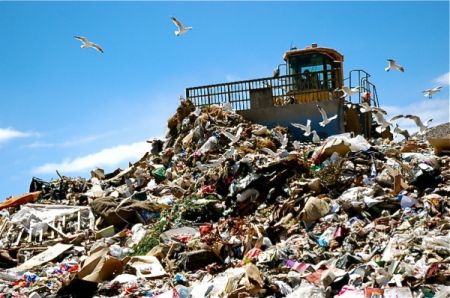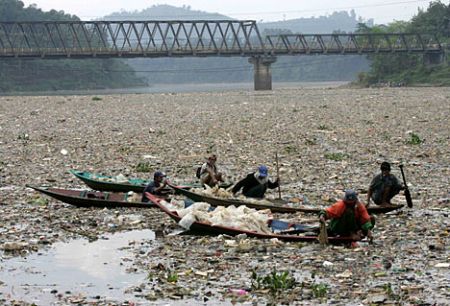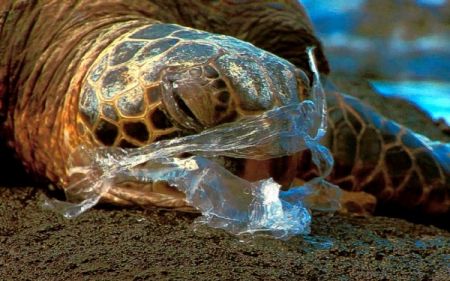
It can take up to 1,000 years for plastic bags to biodegrade.
Yet we continue to produce and use over a billion plastic bags worldwide every day.
Why hasn’t the recent discussion of possibly banning plastic bags in Malaysia treated with more gung-ho than Manchester United getting a kick in the goalpost? Perhaps because those familiar with the perils of encouraging the use of plastic bags are shrugging their shoulders and saying, ‘Well, it’s about time.’ But those who are not are questioning ask, ‘What’s the big freaking deal?’
Well, the big freaking deal is that now that petrol price has gone up to RM 2.70 per litre and global rates are at US$ 130 per barrel, we should realise more than ever the importance of reducing petroleum wastage. How does this relate to plastic bags? It takes 430,000 gallons of oil to produce 100 million non-biodegradable plastic bags.
Let’s consider this: we’re dumping hundreds of thousands of gallons of oil into the manufacture of plastic bags that we ultimately use for a grand total of one time before dumping them into the waste bin. Grand way of depleting the earth of precious resource, eh?
And that’s not withstanding the other kind of impact we’re inflicting on ourselves every time we use a plastic bag.
According to the San Fransisco Department of Environment, we use about 4 trillion to 5 trillion non-degradable plastic bags worldwide annually. However, since plastic bags are essentially poly-bags made of recycled materials, recycling it any further is difficult while burning them creates air pollution. If that’s not enough to pour cold water over your altruistic integrity, it costs $4,000 to process and recycle 1 ton of plastic bags before reselling them for $32. The exceedingly ‘profitable’ economic equation means you’d be lucky to find three people in a hundred who will lean towards recycling plastic bags.

The rest of the 97% of plastic bags that don’t get recycled end up at dump sites. In fact, China and India are increasingly becoming targeted as Third World dumping sites for wastes of the west. We in Malaysia aren’t so irresponsible toward other countries… yet. At the moment, we just dump them into our own backyards.
If that fills up, we head to the local rivers where the flow of nature will take trash away to be filtered and diluted by the great sea.
Or will they get diluted?
It’s true that plastic bags don’t biodegrade. They photo degrade. This means plastics merely get broken up into smaller fragments of plastics until finally becoming plastic dust particles called ‘mermaid tears’ or ‘nurdles’.
Great news? Hardly. This process could take hundreds of years. And even then, nurdles are inclined to soak up toxic chemicals such as the deadly PCBs and DDE compound (from the disreputable insecticide DDT) not to mention the toxic dyes used in the production of plastic bags, all of which is then dispersed into the food chain when microscopic plastic gets swallowed by marine wildlife. Another reason to avoid the sushi, no?
But while the effects of eating plastic-flavoured fish may come to light years from now, more than a million wildlife die every year from plastic ingestion or getting caught in plastic and other debris. Endangered animals such as the leatherback turtles, harbour porpoises and the black footed albatross are especially ungrateful to the worldwide acceptance of plastic bags. They should be – most of them are now dead. With plastic bags found in their stomachs. You see, most marine creatures don’t come equipped with contact lenses. They think plastic bags look like jelly fish. And plastic particles look like food crumbs. So they eat them. Only to find that internal infections, choking or blockages in their intestines forces them to give up eating. These animals then suffer a prolonged death of starvation.

Plastic trash in oceans don’t just affect wildlife. They are responsible for beach litter, degrading commercial value of properties and hurt the fishing industry. 750,000 plastic bags were found during the 2006 International Coastal Clean-Up which took place in over 60 countries. The UN Environment Programme says it’s impossible to thoroughly clean parts of the ocean that extends 100 feet below the surface and spans the area of a continent. So most plastic bags that float easily to the deepest ends of the ocean stay there.
Back on land, plastic bags continue to clog up drains and sewerage contributing to stagnant water and mosquitoes breeding. Indeed, who hasn’t seen a plastic bag flying with the wind?
In China, this sight has gained the nickname ‘white pollution’. In South Africa, plastics bags are all over the place, earning itself the nickname the ‘national flower’.
So, what can we do?
If we resort to paper bags, we’re just forcing trees to grow faster to feed our appetite for bags. Paper bags can be used once before usually getting stained or wet.
 But lo-and-behold the reusable degradable bag!
But lo-and-behold the reusable degradable bag!
Choose from the fashionable ones with bright colours and design or settle for any cotton tote you have. Reusable bags are already the norm in Ireland where a tax of about 20 cents is levied on the usage of plastic bags since March 2002. This tax has raised millions which is then channelled toward environmental concerns. Usages of plastic bags has also dropped by 90% – showing signs that it is a system that can be adopted worldwide.
‘There certainly hasn’t been an angry uprising of shoppers (in Ireland) saying we want our bags for free,” says Claire Wilton, senior waste campaigner at Greenpeace-UK. ‘I think a lot of people recognize they are wasteful. That’s why they try to save them to use again.’
Other countries that have discouraged the use of plastic bags are Australia, Bangladesh, Italy, South Africa and Taiwan. Mumbai, India has banned the bags while London is hot on its heels. Several cities in United States has already banned plastic bags though a national ban has not arrived. In contrast, China recently placed a national ban on plastic bags – effectively putting 37 million barrels of oils to better use.
‘Every time we use a new plastic bag, they go and get more petroleum from the Middle East and bring it over in tankers,’ said Stephanie Barger, executive director of Earth Resource Foundation in Costa Mesa, California. ‘We are extracting and destroying the Earth to use a plastic bag for 10 minutes.’
The solution? Bag it up!

i had no idea it took a thousand years i have found bags in my house that have rotted after just a few months.
Nylon mania came to an abrupt stop at the end of 1941 when the USA entered World War II. The production capacity that had been built up to produce nylon stockings, or just nylons, for American women was taken over to manufacture vast numbers of parachutes for fliers and paratroopers. After the war ended, DuPont went back to selling nylon to the public, engaging in another promotional campaign in 1946 that resulted in an even bigger craze, triggering the so called nylon riots.
I would suggest to log in to http://savetheplasticbag.com/; http://www.plasticsmythbuster.org/ to find out the facts & the true!!
Banning plastic bags a solution or making more the environmental issue?? The ban of the plastic bag is rather emotional than basing on scientific facts!! This is what I learnt from a professor who support the ban of plastic bag in a open forum even he knew the facts!!
A ban on plastic bags is ridiculous. What are we gonna use to throw our daily trash like food leftovers etc.? And research has shown that claims of plastic bags killing thousands of sea animals are greatly exaggerated. Best solution is just to reduce and reuse plastic bags – not a total ban.
http://www.themalaysianinsider.com/malaysia/artic…